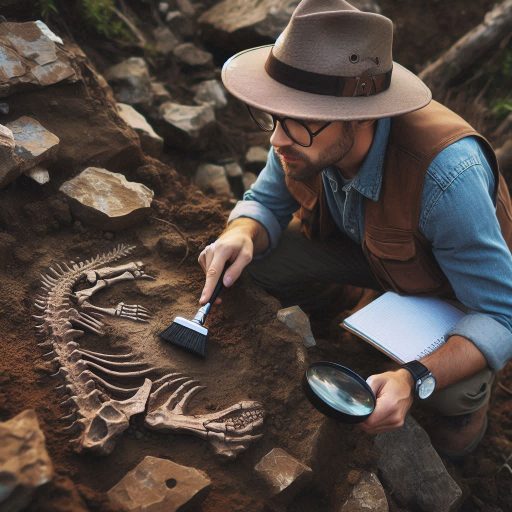Introduction
Meteorological Research and Studies Global Impact plays a crucial role in our daily lives.
It helps us understand weather patterns and climate changes.
Accurate weather forecasting saves lives and protects property.
This research provides vital information for agriculture, disaster management, and public health.
Meteorological studies influence global economies.
Farmers rely on weather predictions to make informed decisions about planting and harvesting.
Industries such as tourism and transportation depend on weather data to optimize operations.
Effective planning reduces costs and enhances productivity.
Additionally, meteorological research addresses climate change.
Scientists analyze climate data to identify trends and recommend solutions.
This research aids policymakers in developing strategies to mitigate environmental impacts.
International collaboration enhances the effectiveness of meteorological research.
Countries share data and resources to tackle global challenges.
These partnerships improve our understanding of weather systems and climate variability.
The impact of meteorological research extends beyond weather forecasts.
It influences economic stability, public safety, and environmental sustainability.
Investing in this field fosters a better future for all.
As climate change poses new challenges, meteorological studies will remain essential for global well-being.
History of Meteorological Research
Origins of Meteorological Research
Meteorological research has deep historical roots.
Ancient civilizations studied weather patterns for agriculture and navigation.
The Babylonians, around 650 B.C., created one of the earliest known weather records.
They observed cloud formations and celestial events.
This laid the groundwork for future meteorological studies.
The Greeks significantly advanced meteorological thought.
Aristotle, in the 4th century B.C., wrote Meteorologica.
He discussed atmospheric phenomena, categorizing them into clouds, rain, and winds.
His work influenced generations of scholars and established a foundation for systematic observation.
During the Middle Ages, weather knowledge stagnated in Europe.
However, Islamic scholars preserved and expanded upon earlier texts.
They developed advanced instruments like the astrolabe, aiding in celestial observations.
By the 10th century, meteorological observations improved significantly in the Middle East.
The Renaissance sparked renewed interest in scientific inquiry.
In the 17th century, European scientists began to quantify weather phenomena.
Galileo Galilei invented the thermoscope, an early thermometer, in 1593.
This invention allowed for temperature measurement, marking a pivotal moment in meteorological research.
In the 17th century, Evangelista Torricelli invented the barometer.
This instrument measured atmospheric pressure, revolutionizing weather prediction.
Torricelli’s work paved the way for a deeper understanding of weather patterns and their influences.
The 19th century marked a turning point in meteorological research.
The establishment of the first meteorological observatories began during this period.
In 1840, the United States created its first official weather service.
Scientists gathered data systematically, enhancing forecasting abilities.
Key Milestones and Advancements in the Field
Advancements in technology further propelled meteorology.
In the 1850s, the invention of the telegraph allowed rapid data transmission.
Meteorologists could share observations across long distances.
This collaboration improved weather forecasting and public safety measures.
The Satellite Era
The introduction of weather satellites in the 20th century transformed meteorological research.
The first successful weather satellite, TIROS-1, launched in 1960.
It provided real-time data on cloud cover and storm systems.
Satellites enhanced our understanding of global weather patterns.
Supercomputing and Modeling
Supercomputers emerged in the late 20th century, revolutionizing weather modeling.
Meteorologists began using complex algorithms to predict weather with greater accuracy.
Numerical weather prediction became a cornerstone of modern meteorology.
Climate Science Emerges
The development of climate science in the late 20th century brought further advancements.
Researchers began to study long-term climate patterns and their effects on weather.
This shift emphasized the importance of understanding climate change.
Today, meteorological research is vital for global health and safety.
Accurate weather forecasting helps mitigate the impacts of natural disasters.
Governments and organizations rely on meteorological data for disaster preparedness.
Meteorology has evolved significantly since its inception.
From ancient observations to advanced satellite technology, the field has transformed.
Ongoing research will continue to shape our understanding of the atmosphere.
As the world faces climate change, meteorological research remains critical for our future.
Read: Exploring the Different Branches of Geology
Global Weather Patterns
Importance of Meteorological Research
Meteorological research plays a crucial role in understanding and predicting weather patterns.
Scientists gather data from satellites, radars, and weather stations worldwide.
They analyze this data to create accurate weather models.
These models help researchers predict how weather systems will evolve over time.
By studying atmospheric conditions, meteorologists can identify trends and anomalies in weather patterns.
This research enables them to forecast severe weather events, such as hurricanes, tornadoes, and blizzards.
Impact of accurate weather forecasting on various industries
Accurate weather forecasting benefits multiple industries.
In agriculture, farmers rely on forecasts to plan planting and harvesting.
They need to know when to irrigate and protect crops from frost or heavy rain.
Meteorologists provide essential information about temperature, precipitation, and wind patterns.
This information helps farmers make informed decisions.
Transform Your Career Today
Unlock a personalized career strategy that drives real results. Get tailored advice and a roadmap designed just for you.
Start NowConsequently, accurate forecasts improve crop yields and minimize losses.
In the transportation sector, precise weather predictions enhance safety and efficiency.
Airlines use weather data to determine flight paths and schedules.
Accurate forecasts help airlines avoid turbulence and dangerous conditions.
This reduces delays and cancellations, benefiting passengers and airlines alike.
Shipping companies also rely on weather information to optimize routes.
They can avoid severe storms, which reduces the risk of accidents and cargo damage.
The tourism industry also benefits from accurate weather forecasting.
Tourists often choose destinations based on expected weather conditions.
A sunny forecast can attract more visitors, while a prediction of rain may deter them.
Hotels and resorts rely on weather forecasts to prepare for peak seasons.
They can adjust staffing levels and inventory based on expected visitor numbers.
This foresight allows them to provide better services and enhance customer satisfaction.
Read: Top Skills Needed for a Successful Geology Career

Climate Change Studies
The Role of Meteorological Research
Meteorological research plays a critical role in understanding climate change.
This field of study provides insights into changing weather patterns.
Meteorologists analyze vast amounts of data to identify trends and anomalies.
Their work reveals how climate change affects various regions worldwide.
This research helps communities adapt and respond to environmental challenges.
Predicting Climate Change Impacts
Meteorologists use advanced technology and models to predict climate change impacts.
They study atmospheric conditions, ocean currents, and land surface changes.
This knowledge enables them to forecast severe weather events.
By analyzing historical data, meteorologists can pinpoint how climate patterns have shifted over time.
Their findings contribute to a more comprehensive understanding of climate change.
Raising Public Awareness
Climate change studies inform policymakers and the public.
Meteorologists translate complex data into understandable information.
They communicate their findings through reports, presentations, and public engagements.
By raising awareness, they help people grasp the urgency of climate change.
Their work encourages discussions about mitigation and adaptation strategies.
Awareness fosters action at local, national, and global levels.
Collaborative Research Efforts
Meteorologists also collaborate with other scientists in interdisciplinary studies.
They work alongside climatologists, oceanographers, and ecologists.
This collaboration enhances the depth of climate research.
Together, they explore the interconnectedness of climate systems.
They study how climate change affects biodiversity, agriculture, and human health.
Such comprehensive research leads to more effective climate solutions.
Empowering Communities
Public understanding of climate change depends on meteorologists‘ expertise.
They serve as trusted sources of information during climate events.
By providing accurate forecasts, they help communities prepare for extreme weather.
Their insights guide disaster response strategies and resource allocation.
Awareness of impending climate threats empowers individuals and communities to take action.
Showcase Your Business Today
Reach thousands of readers actively exploring professional services. Publish your business profile and grow your audience now.
Publish NowEngaging with the Media
Meteorologists often engage with media to share their knowledge.
They participate in interviews, write articles, and create educational content.
Through these channels, they reach broader audiences.
They inspire people to take climate change seriously.
This engagement fosters a sense of urgency and responsibility.
Educating Future Generations
In schools, meteorologists contribute to educational initiatives.
They participate in outreach programs and workshops.
Their efforts inspire the next generation of scientists and informed citizens.
They emphasize the importance of understanding weather patterns and climate change.
Education is a powerful tool in combating climate change.
Broader Impacts on Society
The impact of meteorological research extends beyond academia.
It influences industries and governments.
Businesses rely on meteorological data for risk management.
Farmers use weather forecasts to optimize crop yields.
Urban planners incorporate climate data into their designs.
This integration promotes resilience against climate impacts.
Meteorological research significantly contributes to climate change studies.
Meteorologists raise awareness and provide essential data for understanding climate impacts.
Their work influences policy, education, and public awareness.
As climate change continues to pose global challenges, meteorologists remain at the forefront of research.
They play a vital role in shaping a sustainable future for our planet.
Read: The Future of Botany: Emerging Fields and Innovations
Natural Disaster Prevention
How meteorological research helps in predicting and preparing for natural disasters
Meteorological research plays a crucial role in predicting and preparing for natural disasters.
It helps scientists analyze weather patterns and atmospheric conditions.
By studying these patterns, researchers can forecast events like hurricanes, tornadoes, and tsunamis.
Early detection is vital for minimizing the impact of these disasters on communities.
Meteorologists use advanced technology to track and predict severe weather conditions.
Tools such as Doppler radar, satellite imagery, and computer models improve prediction accuracy.
These technologies enable meteorologists to monitor storms and identify potential threats.
As a result, communities receive timely warnings that can save lives and reduce property damage.
Hurricanes are among the most destructive natural disasters.
Meteorological research allows for tracking hurricane formation and intensification.
Accurate forecasts enable officials to evacuate at-risk areas well in advance.
Timely alerts help residents prepare for high winds, flooding, and storm surges.
Prepared communities significantly reduce the potential loss of life and property.
Tornadoes pose another significant threat.
Meteorologists analyze atmospheric conditions to identify tornado formation.
They use radar systems to detect rotation within storm clouds.
When conditions are favorable for tornado development, warnings are issued immediately.
These alerts allow communities to seek shelter and take necessary precautions.
Tsunamis, while less common, can cause catastrophic damage.
Seismic studies, in conjunction with meteorological research, play a vital role in tsunami prediction.
Scientists monitor undersea earthquakes that often trigger tsunamis.
Real-time data enables tsunami warning centers to alert coastal areas.
Quick evacuation can save countless lives during such emergencies.
Importance of timely warnings and alerts based on meteorological studies
Timely warnings and alerts based on meteorological studies are essential for public safety.
These warnings provide crucial information to emergency management agencies.
They help authorities coordinate evacuation plans and allocate resources effectively.
When communities are informed about potential disasters, they can implement safety measures.
Moreover, effective communication channels play a significant role in disseminating warnings.
Social media, mobile apps, and emergency alert systems reach a broad audience.
These platforms ensure that information is available to everyone, regardless of location.
Community preparedness is enhanced when people understand the risks they face.
Meteorological research continues to evolve, incorporating new technologies and methodologies.
Scientists work tirelessly to improve prediction models and warning systems.
Their efforts not only save lives but also reduce the economic impact of natural disasters.
Investing in meteorological research is crucial for building resilient communities.
Meteorological research is vital for predicting and preparing for natural disasters.
Accurate forecasts and timely warnings save lives and protect property.
By prioritizing this research, society can better mitigate the risks posed by severe weather events.
Economic Impact
Saving Lives and Property
Meteorological research significantly influences the economy by saving lives and protecting property.
It plays a vital role in disaster preparedness and response.
Accurate weather forecasting allows communities to prepare for severe weather events, reducing casualties and injuries.
Governments use meteorological data to issue timely warnings, helping citizens evacuate when necessary.
By improving response times to natural disasters, meteorology saves countless lives.
The economic impact of loss prevention is substantial.
For instance, timely warnings before hurricanes can lead to effective evacuation and disaster preparedness.
These measures drastically lower casualties and property damage.
How accurate weather forecasting can help businesses make informed decisions and mitigate risks
Moreover, accurate weather predictions allow businesses to make informed decisions.
Industries such as agriculture, construction, and transportation rely heavily on weather forecasts.
Farmers, for example, depend on precise weather information to schedule planting and harvesting.
They can avoid crop losses caused by unexpected weather conditions.
In construction, accurate weather forecasts help project managers schedule work effectively.
They can plan construction timelines around predicted weather conditions, minimizing delays.
This foresight saves companies money by avoiding wasted resources on inclement weather days.
Enhancing Transportation Efficiency
Transportation also benefits from meteorological research.
Airlines use weather data to optimize flight paths and schedules.
This information helps prevent delays and cancellations caused by adverse weather conditions.
By improving operational efficiency, airlines save on costs and enhance customer satisfaction.
Retail businesses also gain from accurate weather forecasts.
They can adjust inventory and staffing levels based on predicted weather patterns.
For example, clothing retailers stock up on winter gear in anticipation of colder months.
This strategic planning helps them maximize sales and minimize losses.
Insurance Risk Assessment
Insurance companies heavily rely on meteorological data to assess risk.
They use this information to set premiums for homeowners and businesses.
Accurate weather forecasts allow insurers to better evaluate potential claims related to natural disasters.
This assessment helps them manage their financial exposure and provide affordable coverage.
The fishing industry is another sector that benefits from meteorological research.
Fishermen rely on weather forecasts to determine safe fishing conditions.
They can avoid dangerous storms and maximize their catch during favorable weather.
This knowledge improves safety and boosts the industry‘s overall profitability.
Boosting Tourism
Meteorological research also influences tourism.
Tour operators and hotels rely on accurate forecasts to plan promotional activities.
They can encourage travel during optimal weather conditions, increasing visitor numbers and revenues.
Seasonal tourism trends benefit significantly from precise meteorological data.
Urban Planning and Resilience
Government agencies use meteorological research for urban planning.
They consider climate data when designing infrastructure and zoning regulations.
This planning minimizes the economic impact of extreme weather events, ensuring community resilience.
The economic impact of meteorological research is vast.
It saves lives and protects property while helping businesses make informed decisions.
Accurate weather forecasts mitigate risks and drive efficiency across various sectors.
Investing in meteorological research yields substantial economic returns, enhancing community safety and prosperity.
Read: What Does a Geologist Do? Career Overview and Insights
Environmental Conservation
Meteorological research plays a crucial role in understanding environmental changes.
It monitors atmospheric conditions and tracks shifts in weather patterns.
These studies provide essential data for climate change analysis, impacting ecosystems worldwide.
The Role of Meteorological Research in Monitoring Environmental Changes
Meteorological research involves measuring temperature, precipitation, and wind patterns.
These measurements help scientists identify changes in climate over time.
For instance, increasing temperatures can signal shifts in habitat ranges for various species.
Satellite technology enhances meteorological studies by providing real-time data.
Satellites monitor land use, vegetation cover, and atmospheric conditions from space.
This information allows researchers to detect changes in ecosystems quickly.
Long-term weather data collection is vital for understanding trends in climate variability.
Researchers analyze historical weather patterns to identify shifts that affect ecosystems.
They can predict how changes will impact biodiversity and habitat health.
How meteorological studies contribute to preserving ecosystems and biodiversity
Meteorological studies contribute significantly to preserving ecosystems.
Understanding climate dynamics helps conservationists make informed decisions.
These decisions can involve protecting endangered species and managing natural resources effectively.
For example, meteorological research aids in identifying areas vulnerable to drought.
Conservationists can then prioritize these areas for intervention and resource allocation.
This proactive approach helps safeguard ecosystems against extreme weather events.
Meteorological research also informs habitat restoration projects.
By analyzing climate data, researchers can select suitable species for reforestation.
These species can thrive in future climate conditions, ensuring the success of restoration efforts.
Biodiversity Preservation
Meteorological studies play a key role in biodiversity preservation.
They help scientists understand how climate change affects different species.
This understanding allows for the development of effective conservation strategies.
For example, shifts in temperature and precipitation patterns can threaten specific species.
Meteorologists analyze these patterns to predict potential impacts on habitats.
Such predictions guide conservation efforts to protect vulnerable species.
Additionally, meteorological research supports the establishment of protected areas.
By understanding climate patterns, scientists can recommend areas with stable conditions for wildlife.
This information aids in designing conservation plans that enhance biodiversity.
Meteorological research is essential for environmental conservation.
It helps monitor and study environmental changes affecting ecosystems.
By understanding climate dynamics, researchers can inform conservation strategies.
This knowledge ultimately contributes to preserving biodiversity and ensuring the health of our planet.
Through active research and collaboration, scientists continue to drive progress in environmental conservation.
Their efforts create a better understanding of the interconnectedness between weather patterns and ecosystems.
As we face climate challenges, this knowledge is crucial for safeguarding our environment for future generations.
Emerging Technologies
Meteorological research has seen tremendous advancements through emerging technologies.
These innovations are reshaping how scientists study weather patterns and climate change.
Advanced tools like satellites, drones, and supercomputers play a crucial role in this transformation.
The use of advanced technologies in meteorological research
Satellites have revolutionized meteorology by providing real-time data from space.
They monitor weather conditions, track storms, and observe global climate changes.
These machines capture images and data across vast areas.
This information helps meteorologists understand large-scale weather phenomena better.
Modern satellites utilize advanced sensors to collect data on temperature, humidity, and wind speed.
They transmit this information back to Earth, enabling scientists to analyze conditions swiftly.
Satellites can also identify emerging weather patterns that might otherwise go unnoticed.
With high-resolution imaging, meteorologists can assess the severity of storms and predict their paths more accurately.
Drones have become essential tools in meteorological research.
They provide unique insights from ground level, complementing satellite data.
Equipped with various sensors, drones gather information on localized weather conditions.
They can fly into areas where traditional aircraft cannot, capturing data in hard-to-reach locations.
Researchers use drones to study phenomena like thunderstorms and tornadoes closely.
These devices collect real-time data on temperature, wind speed, and atmospheric pressure.
This information enhances forecasting models, allowing for more accurate predictions of severe weather events.
Drones also aid in studying the impact of climate change on ecosystems.
Supercomputers have transformed how meteorologists process vast amounts of data.
They simulate weather patterns and analyze complex models at unprecedented speeds.
This capability allows scientists to run multiple simulations simultaneously, improving forecasting accuracy.
Supercomputers process satellite and drone data quickly.
This rapid processing enables meteorologists to provide timely weather updates.
By integrating various data sources, supercomputers enhance the precision of weather predictions.
As a result, communities receive better warnings for severe weather events, allowing them to prepare effectively.
The Future of Meteorology
The future of meteorology looks promising with these emerging technologies.
Continued advancements in satellite technology, drone capabilities, and computing power will improve research and forecasting.
Researchers are exploring innovative applications for artificial intelligence and machine learning in weather prediction.
These technologies will analyze patterns and trends in data that humans might overlook.
As meteorological research continues to evolve, the integration of these technologies will deepen our understanding of weather systems.
Improved forecasting accuracy will benefit agriculture, disaster management, and public safety.
Communities can make informed decisions based on reliable weather forecasts.
Emerging technologies are revolutionizing meteorological research and forecasting accuracy.
Satellites, drones, and supercomputers provide vital data and insights.
They enhance our ability to understand and predict weather patterns effectively.
As these technologies develop, they will play an even more significant role in shaping the future of meteorology.
This evolution will ultimately lead to safer and more prepared communities worldwide.
You Might Also Like: Nanotechnology: Pioneering Innovations in Research
Global Collaboration and Partnerships
Meteorological research is vital for understanding and predicting climate and weather patterns.
International cooperation enhances the effectiveness of this research.
When countries collaborate, they share data, expertise, and resources.
This collaboration leads to better outcomes for everyone involved.
Meteorology is a global issue that requires a unified response to address its challenges effectively.
The Importance of International Cooperation
Climate change, natural disasters, and extreme weather affect nations worldwide.
These issues do not respect borders, making international collaboration essential.
By working together, countries can enhance their understanding of meteorological phenomena.
Joint efforts lead to more comprehensive research findings.
This improves weather forecasting and disaster preparedness.
Countries face different meteorological challenges based on their geographical locations.
Sharing insights helps nations address these unique challenges effectively.
For instance, countries prone to hurricanes can learn from those with extensive experience in cyclone tracking.
Similarly, regions affected by drought can benefit from techniques developed in other areas.
Collaboration fosters knowledge transfer and promotes innovative solutions.
International partnerships also increase the availability of funding for meteorological research.
Shared projects can attract larger grants and investments.
This financial support allows for advanced technologies and improved research methodologies.
Consequently, countries can enhance their meteorological capabilities significantly.
Major Organizations and Initiatives Working Towards Advancing Meteorological Studies
Several organizations play a crucial role in promoting global collaboration in meteorological research.
The World Meteorological Organization (WMO) stands out among these.
As a specialized agency of the United Nations, WMO coordinates international efforts in meteorology.
It provides a platform for nations to share data and expertise.
WMO also develops global standards for weather monitoring and forecasting.
The Global Weather Enterprise (GWE) is another key player.
This collaborative initiative focuses on enhancing the provision of weather services.
It unites national meteorological services, private sector companies, and research institutions.
GWE aims to advance the understanding and application of meteorological science worldwide.
The Intergovernmental Panel on Climate Change (IPCC) further illustrates the importance of collaboration.
IPCC assesses scientific information related to climate change and its impacts.
It synthesizes research from around the world and offers policy recommendations.
The IPCC’s work relies on the contributions of thousands of scientists globally.
Their findings shape international climate agreements and strategies.
Initiatives for Advancing Meteorological Research
Various initiatives support international collaboration in meteorology.
The Global Climate Observing System (GCOS) promotes systematic observations of the Earth’s climate.
It coordinates efforts among countries to ensure reliable data collection.
By standardizing measurement practices, GCOS improves the quality of climate data.
The Copernicus Climate Change Service (C3S) is another initiative enhancing global cooperation.
C3S provides comprehensive climate information and tools for decision-makers.
Its services are crucial for adapting to climate change impacts.
In addition, the World Climate Research Programme (WCRP) facilitates international research efforts.
WCRP focuses on understanding the interactions between the climate system and human activities.
It fosters collaboration among scientists, institutions, and governments.
Global collaboration in meteorological research is essential for addressing climate challenges.
Organizations and initiatives work tirelessly to enhance international cooperation.
Through shared knowledge and resources, nations can better prepare for and respond to meteorological issues.
Investing in these partnerships will lead to a safer and more resilient world.
Conclusion
Gaining hands-on experience in engineering is crucial for professional growth.
Internships offer valuable opportunities to apply theoretical knowledge in real-world settings.
Participating in engineering projects enhances your skills and builds your resume.
Engaging in workshops and seminars fosters collaboration with industry experts.
Volunteering for engineering-related initiatives allows you to contribute to your community.
Networking with professionals opens doors to future opportunities.
Building relationships with peers and mentors provides guidance and support.
Utilizing online platforms to find projects and internships helps you stay updated.
Joining engineering clubs or organizations can also expand your connections.
Investing time in practical experience prepares you for challenges in the field.
This experience significantly enhances problem-solving skills and critical thinking.
Employers highly value candidates with hands-on experience.
Such experience also boosts your confidence in tackling complex engineering issues.
Actively seeking hands-on opportunities will shape your engineering career.
This proactive approach ensures you remain competitive in the job market.
By gaining experience, you can contribute to technological advancements that improve lives.
Your efforts will play a vital role in addressing global challenges and enhancing the quality of life for people everywhere.
[E-Books for Sale]
The Big Book of 500 High-Paying Jobs in America: Unlock Your Earning Potential
$19.99 • 500 High-Paying Jobs • 330 pages
Explore 500 high-paying jobs in America and learn how to boost your career, earn more, and achieve success!
See All 500 High-Paying Jobs of this E-Book
1001 Professions Without a Degree: High-Paying American Jobs You Can Start Now
$19.99 • 1001 Professions Without a Degree • 174 pages
Discover 1001 high-paying jobs without a degree! Unlock career tips, skills, and success strategies for just $19.99!




